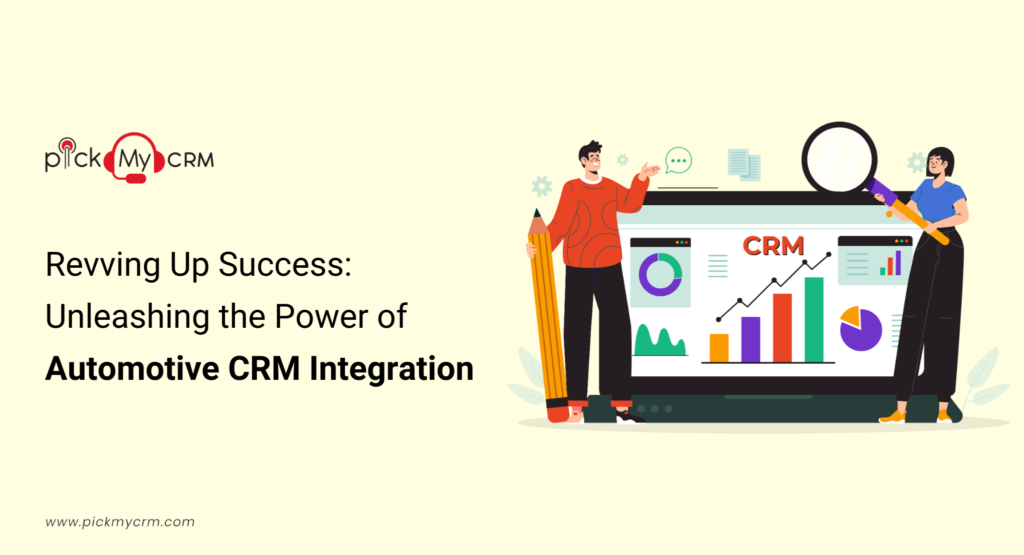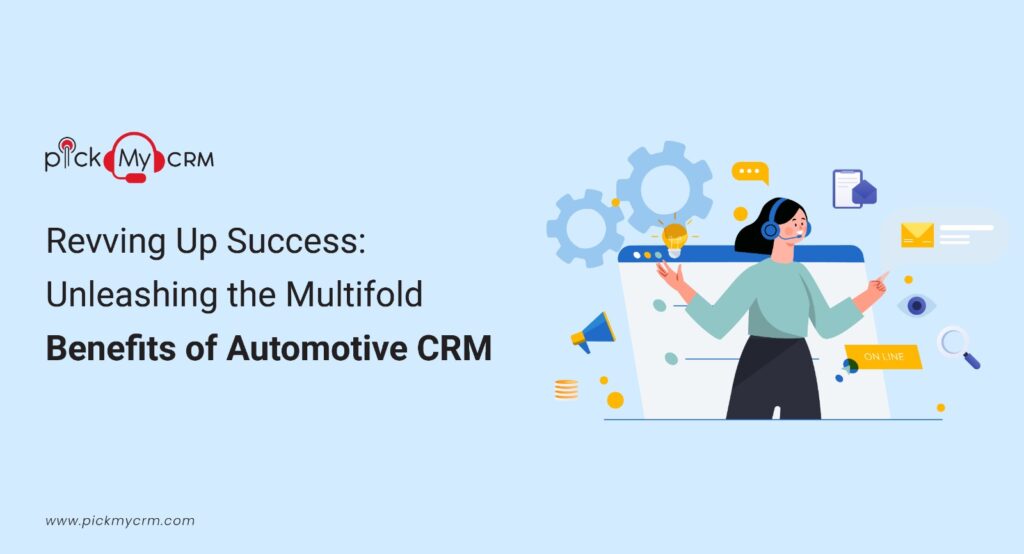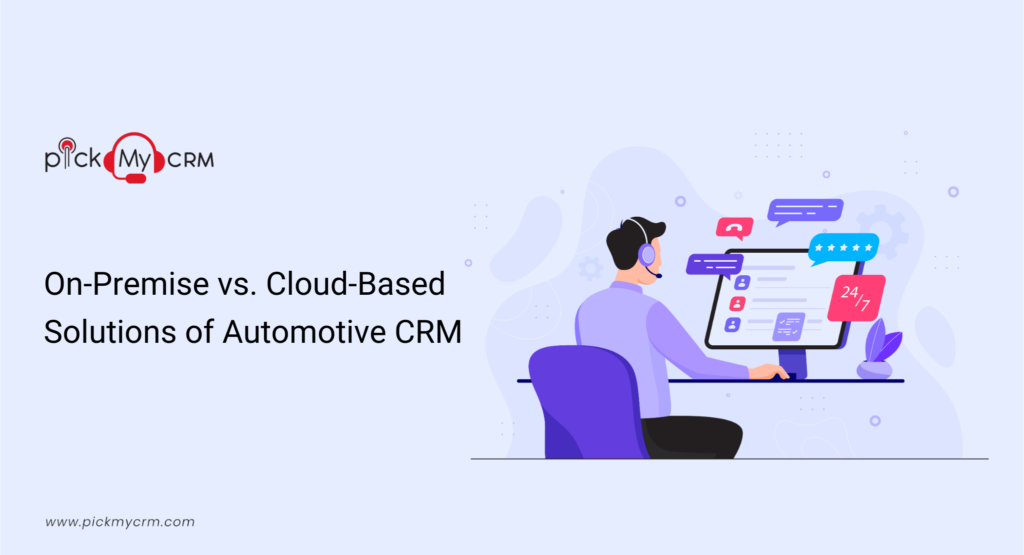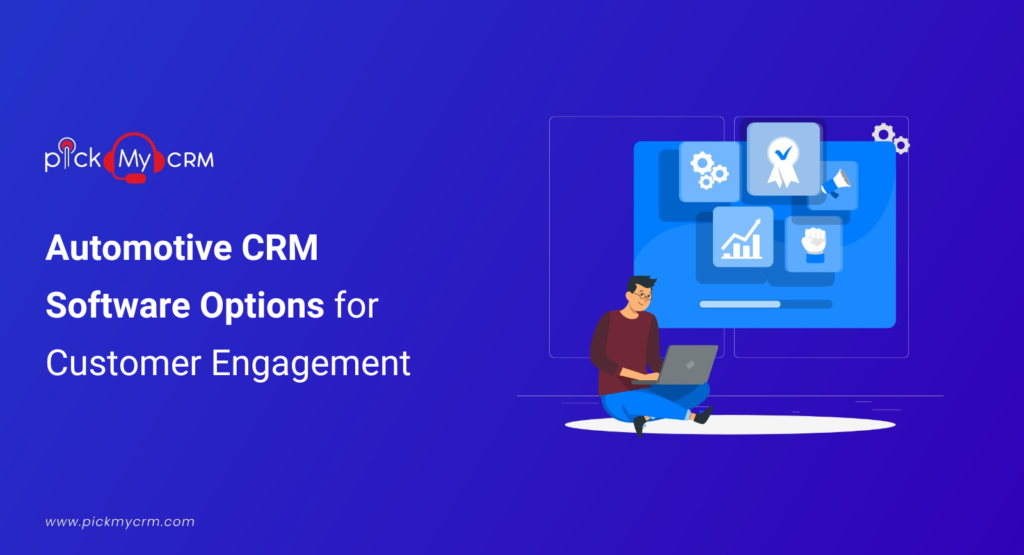Revving Up Success: Unleashing the Power of Automotive CRM Integration

Why Integrate an Automotive CRM?
The Automotive landscape is highly competitive, making exceptional customer service and data-driven decision-making crucial. CRM integration centralizes customer information, streamlines processes, and enhances communication. In turn, it leads to Improved customer satisfaction, higher conversion rates, and increased sales.How to Integrate an Automotive CRM: Step-by-Step Integration Process
Define Objectives
Start by identifying the specific goals you want to achieve through CRM integration. Whether your goal is to enhance customer service, boost sales, improve data management, or Achieve a combination of these outcomes, well-defined objectives will provide direction for shaping your integration strategy.Select the Right CRM Solution
Investigate and choose a CRM platform explicitly crafted to fulfill the demands of the automotive industry. Look for features that align with your defined objectives, such as lead tracking, inventory management, customer segmentation, and communication tools. Evaluate the CRM's scalability, user-friendliness, and integration capabilities.Data Preparation
Prepare your existing data for migration. Cleanse the data by removing duplicates and outdated entries. Ensure that data fields are standardized and consistent. This step is critical to prevent data discrepancies and ensure a smooth transition.Customization and Configuration
Customize the CRM to fit your dealership's specific processes and workflows. Create custom fields to capture information relevant to your business. Customize the CRM to automate functions like sending follow-up emails or appointment reminders.Integration with Existing Systems
Integrate the CRM with other systems crucial for your dealership's operations. It could include your inventory management system, accounting software, or marketing tools. APIs (Application Programming Interfaces) or middleware can facilitate seamless data exchange between these systems. Ensure that data synchronization is bidirectional and real-time.Training and Onboarding
Offer comprehensive training to all Personnel using the CRM, emphasizing advantages like enhanced efficiency, deeper customer insights, and streamlined processes. Address any apprehensions or hesitations and ensure continuous support throughout the transition phase.Testing and Quality Assurance
Thoroughly test the integrated system before launching it dealership-wide. Conduct data migration tests to verify accuracy and completeness. Conduct usability testing to Verify that workflows function as expected. Identify and rectify any bugs, glitches, or inconsistencies.Launch and Monitor
Roll out the CRM across your dealership in a phased manner. Vigilantly monitor its performance in the early phases, collecting user feedback to pinpoint potential issues or areas that require enhancement. Continuously assess data accuracy, system stability, and user satisfaction.Continuous Improvement
Based on user feedback and ongoing monitoring, make necessary improvements and optimizations to the CRM system. It could involve refining workflows, addressing user concerns, or adding new features to enhance functionality.When to Consider Automotive CRM Integration
Consider CRM integration when identifying inefficiencies in lead management, customer communication, or sales tracking. This strategic move, crucial for best practices in business optimization, proves opportune during system upgrades or expansion, facilitating personalized customer interactions and operational efficiency.Where Does Automotive CRM Integration Apply?
CRM integration finds applications across various automotive sectors – dealerships, service centers, car rental companies, and more. Any business aiming to strengthen customer relationships, streamline sales processes, and Leverage data insights can benefit from Automotive CRM integration.Challenges in Automotive CRM Integration
- Data Quality and Migration: Transferring data from existing systems to the new CRM can be complex and time-consuming. It's crucial to ensure data accuracy and integrity during this process.
- Employee Training: Introducing a new CRM requires comprehensive training for dealership staff. Overcoming resistance to change and ensuring everyone is proficient in using the system is essential.
- User Adoption: Resistance to change among employees can hamper CRM adoption. Proper training and highlighting the benefits are Essential to overcome this challenge.
- Integration Complexity: Integrating CRM with existing tools, like marketing automation and analytics platforms, can be complex. Technical know-how might be necessary to resolve compatibility challenges that might emerge.
- Customization vs. Out-of-the-Box Solutions: Striking the right balance between customizing the CRM to suit specific needs and using out-of-the-box features can be challenging. Over-customization can lead to higher costs and longer implementation times.
Benefits of Integrating an Automotive CRM
Integrating an Automotive CRM reaps a multitude of benefits that drive operational excellence and customer satisfaction,- Personalized Experiences: CRM integration tailors interactions for enhanced engagement and loyalty.
- Efficient Sales: Real-time inventory insights accelerate customer-vehicle matching.
- Data-Driven Decisions: Customer insights guide strategic choices and optimize marketing efforts.
- Communication: Automated tools strengthen relationships through timely interactions.
- Effective Lead Management: Centralized tracking boosts conversion rates.
- Streamlined Workflows: Processes align, reducing manual tasks and enhancing efficiency.
- Customer Retention: Targeted services increase satisfaction and repeat business.
- Accurate Reporting: Generate comprehensive reports for evaluation and goal-setting.
- Competitive Edge: Exceptional experiences outperform competitors.
- Operational Insights: Monitoring improves staff performance and resource allocation.
- Data Integrity: Centralized management ensures accurate customer information.
- Customer Segmentation: Tailor marketing campaigns for higher ROI.



